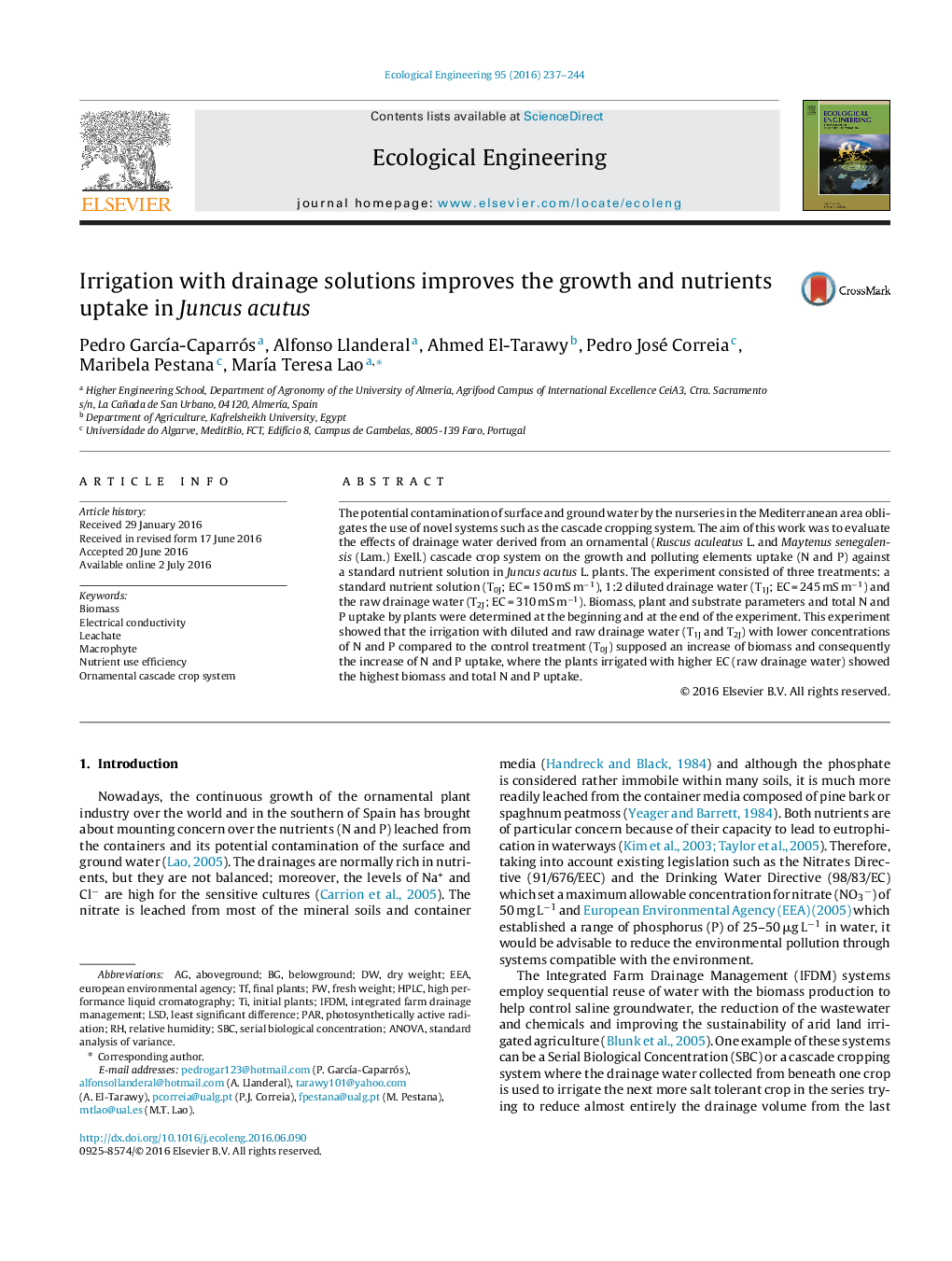| Article ID | Journal | Published Year | Pages | File Type |
|---|---|---|---|---|
| 4388448 | Ecological Engineering | 2016 | 8 Pages |
•Irrigation with drainage water enhanced biomass and plant parameters in Juncus.•Plants irrigated with raw drainage water showed the highest TN and TP uptake.•Diluted and raw drainage water treatments increased N and P use efficiency.•Chloride and Na use efficiency were reduced under diluted and raw drainage water.
The potential contamination of surface and ground water by the nurseries in the Mediterranean area obligates the use of novel systems such as the cascade cropping system. The aim of this work was to evaluate the effects of drainage water derived from an ornamental (Ruscus aculeatus L. and Maytenus senegalensis (Lam.) Exell.) cascade crop system on the growth and polluting elements uptake (N and P) against a standard nutrient solution in Juncus acutus L. plants. The experiment consisted of three treatments: a standard nutrient solution (T0J; EC = 150 mS m−1), 1:2 diluted drainage water (T1J; EC = 245 mS m−1) and the raw drainage water (T2J; EC = 310 mS m−1). Biomass, plant and substrate parameters and total N and P uptake by plants were determined at the beginning and at the end of the experiment. This experiment showed that the irrigation with diluted and raw drainage water (T1J and T2J) with lower concentrations of N and P compared to the control treatment (T0J) supposed an increase of biomass and consequently the increase of N and P uptake, where the plants irrigated with higher EC (raw drainage water) showed the highest biomass and total N and P uptake.
